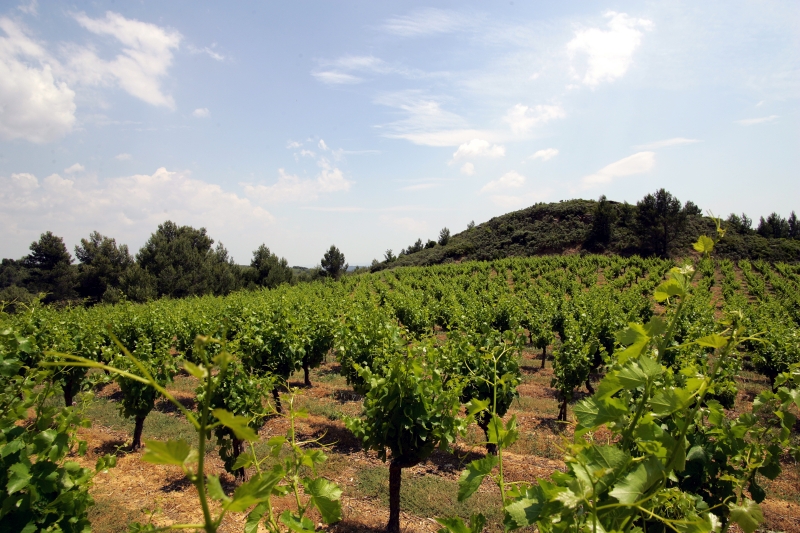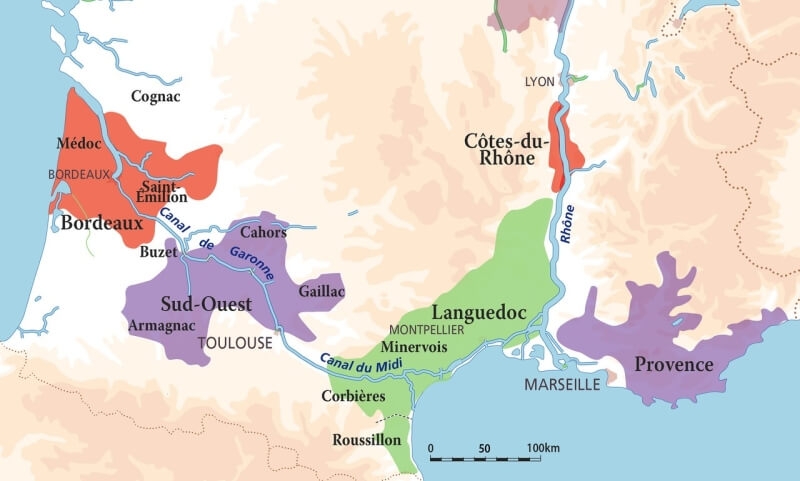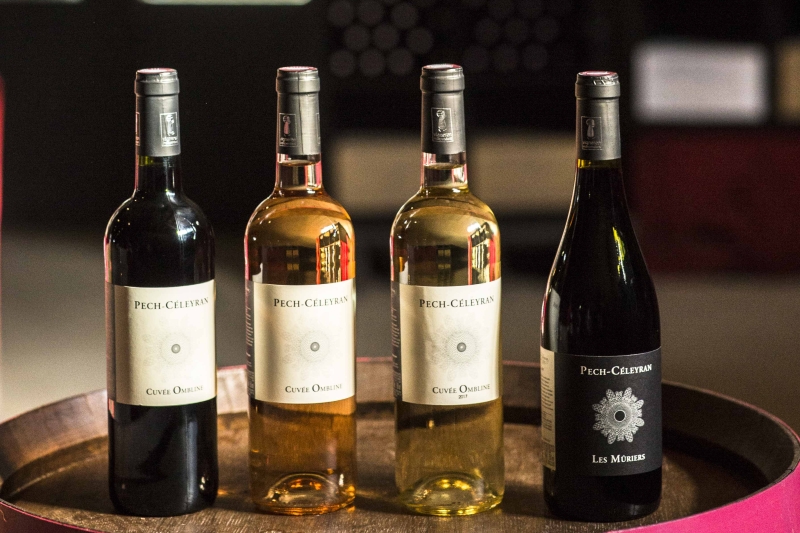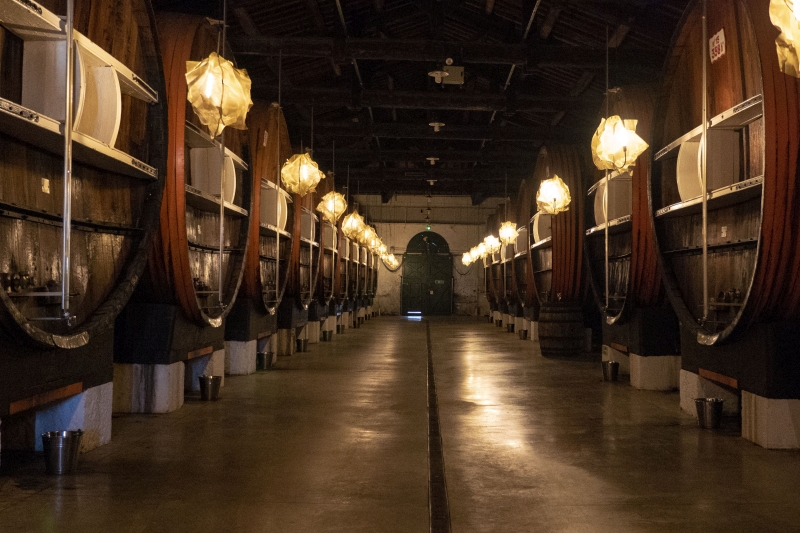La Clape is a sub-appellation covering red and white wines on the eastern fringes of Narbonne, and the official area encompasses the villages of Armissan, Fleury-d’Aude, Vinassan and Salles d’Aude. Located less than 4 miles (10km) from the coast, La Clape has a climate that is definitively Mediterranean and a clear marine influence due also to its proximity to the various local étangs (lagoons). Its much-respected red Languedoc wines are produced from Grenache, Syrah and Mourvèdre, whilst Carignan and Cinsault are gradually being phased out from local vineyards. One of the best known wineries in the La Clape region is Pech-Celeyran, owned by the Saint Exupery family for 5 generations with its fruity and elegant vintages. You can visit this on a European Waterways cruise aboard the 8 passenger hotel barge Anjodi.
One of the best known wineries in the La Clape region is Pech-Celeyran, owned by the Saint Exupery family for 5 generations with its fruity and elegant vintages. You can visit this on a European Waterways cruise….
The lesser-known white La Clape Languedoc wines are made from the classic Languedoc white blend, which includes Grenache Blanc, Clairette and Bourboulenc, with smaller amounts of the Rhône varieties Marsanne and Rousanne. The appellation even permits the use of Piquepoul, the speciality grape of Pinet.
St-Chinian has one of the most distinctive reputations for Languedoc wines in all three colours, perhaps most characterfully from the rugged schists of the north and west of its region at altitudes often above 1,900ft (600m) in spectacular mountainous country. The appellation is known for its fine whites and Carignan-marked reds which are heavily influenced by Rhône varieties, particularly Syrah grown on schist, as well as the predominant Carignan, Cinsault, Grenache, Lledoner Pelut and Mourvèdre. Vines grown at lower altitudes in the unusual purple-clay and limestone soils around the village of St Chinian tend to yield softer and more supple wines.
Faugères AOC is made up of almost entirely rocky schist and demands hard work on the meagre soil where vineyards of red, white and rosé are planted at up to 2,300ft, overlooking Béziers and the vast plain, no longer a sea of vines, that stretches towards the coast. The main grape varieties are Carignan, Grenache, Mourvèdre, Syrah and Cinsault. Its Languedoc wines are rounded with mature fruits and soft tannins.
Clairette du Languedoc and Picpoul de Pinet are white Languedoc wines specifically embraced by the AOC system. The first is made to a limited extent, just north of Pézenas, in a modern and fresh style that can also be late-harvested and sweet. The latter, unusually for France, is a varietal appellation, in this case dependant on the quirky, lemon scented Picpoul grape grown between Pézenas and the Étang de Thau.
 English
English
 Spanish
Spanish French
French German
German Norwegian
Norwegian Portuguese
Portuguese Swedish
Swedish Italian
Italian Russian
Russian Simplified Chinese
Simplified Chinese Japanese
Japanese





